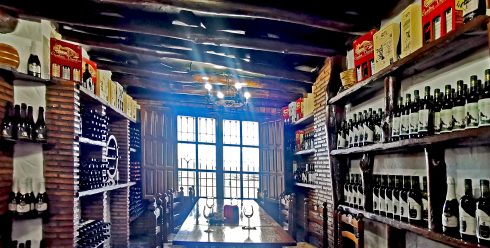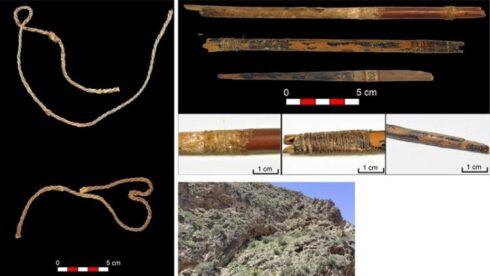THERE may be light at the end of the tunnel for longsuffering malagueños, whose team football Malaga FC are four points adrift of safety in the Segunda Division B and staring another relegation in the face.
It has been reported that the fabulously wealthy Qatar Sports Investment, owners of big-spending Paris Saint-Germain, has started negotiations to buy their club.
Just last month, a Spanish judge ordered the seizure of club owner Sheikh Abdullah Al-Thani’s assets in Spain over a litany of unpaid debts.
These include his shares in Malaga FC, and could lead to the sale of the club for a knockdown price – after all you’d hardly pay top dollar for an asset that has seemingly been run into the ground.
It would bring to a close the troubled tenure of Qatari royal family member Al-Thani, whose purchase of the Costa del Sol club in 2010 among grand promises ushered in a new era of foreign ownership in Spanish football.
Traditionally, Spanish clubs have been owned by local businessmen or the fans themselves, and the system seemed to work well.
Especially given that, when Al-Thani bought Malaga FC, La Liga was already top of UEFA’s complex coefficient ranking system and Spanish clubs were regularly winning the Europa and Champions Leagues.
But it was hoped that this new vanguard of foreign owners might provide further financial firepower and augment Spanish supremacy to an even higher pinnacle.
However, with English clubs dethroning Spanish clubs in UEFA’s coefficient in 2020, we take a look at just how successful this era has been.
A PROMISING START
It was just ten years ago in April that Malaga FC stormed to the Champions League quarter-finals, brushing shoulders with football royalty at Europe’s top table.
They bested Italian titans AC Milan in the group stage, and eased past Portuguese powerhouse Porto in the round of 16.
They met their match against German heavyweights Borussia Dortmund in the next round, but it was a tight 3-2 affair.
Such heady heights of the 2012-13 season had Al-Thani looking like a Middle Eastern messiah whose leadership would bring Malaga among La Liga’s second-tier heavyweights – at least equal to Sevilla and Valencia if below Real and Barca.
However, financial difficulties including unpaid player wages and transfer fees soon followed on pitch failure and relegation down not just one league but two.
Al-Thani’s ownership of the club came under investigation in 2018 which found sufficient wrongdoing to sanction the club and ban it from European competition for a season.
After promising fans the world and spending heavily on players and wages to get into the Champions League, the huge outlays ultimately got the club into catastrophic difficulties.
Why didn’t Al-Thani, a presumably wealthy Qatari royal, just wave his hand to make the debts go away, as wealthy benefactors at PSG, Chelsea, Manchester City and Newcastle United have done?
This question leads down a rabbit warren of conspiracy theories regarding Al-Thani and his stewardship of Los Boquerones.
Many malagueños suspect that his entire ownership was merely an exercise in laundering large sums of money internationally at the expense of the clubs and fans.
HOW ABOUT VALENCIA?
Malaga fans might find some common ground with the Valencianistas; supporters of one of Spain’s traditionally more powerful clubs.
They performed the rare feat of toppling Barca and Madrid to win La Liga in 2004, as well as reaching back-to-back Champions League finals in 2000 and 2001.
But then Singaporean businessman Peter Lim came in in 2014 and it all went downhill.
Lim is accused, quite simply, of asset stripping the club during his stewardship.
From selling star players Carlos Soler, Gonçalo Guedes and Ferran Torres to appointing his business mate Gary Neville to manage the club for an abysmal four months.
Neville, with whom Lim shares ownership of Salford FC in Manchester along with David Beckham and other famous United alumni, lost half of the 16 games he oversaw in a car crash tenure.
Lim has also refused to invest in the infrastructure or facilities of the club, and is currently burning through his seventeenth manager – club legend Ruben Barajas the latest to sip from the poisoned chalice.
In fact, since Lim took charge, the club have reached the Champions League just once, in the 2017-18 season, and otherwise the trajectory has been borderline flatline.
In response, fans of the club have been mobilising; abandoning the stadium on match day and taking to the streets to protest during the start of matches.
Not that Lim would have noticed – he hasn’t been at the Mestalla stadium in five years.
OF MODELS AND MONEY
Foreign ownership of their football clubs has not brought the riches and success that has been seen in England and France, and to a lesser extent Italy.
That might be because the biggest beasts in the Spanish food chain, and those with the greatest sporting and commercial potential, are owned by their fans and not for sale.
Real Madrid and Barcelona, the true apex predators of European football over the past decade, are owned by their members, who vote to elect a president and board of directors.
It is known as the ‘socios’ model, which is unique to Spain and is based on the idea of a club being a social organisation rather than a purely commercial enterprise.
Yet even this seemingly benign model has run aground, with Barcelona struggling with a bloated wage bill and huge financial problems.
Real Madrid, meanwhile, are faring better but even they are struggling to compete with the financial firepower found in the Premier League.
The English league’s monetary muscle is based around staggering television deals in which the wealth is shared equally among the league’s 20 teams.
Whereas in Spain, Real and Barca hoover up the lion’s share of the television income, leaving the rest of the league struggling to compete.
Coupled with the genuine largesse of wealthy owners of English football clubs, they have generally blown their Spanish counterparts out of the transfer market water and it is beginning to show in results.
Meanwhile, already at a financial disadvantage, Spanish clubs find themselves attracting the wrong foreign investors who only make things worse.
BUT WAIT?
Fans of Granada FC might beg to differ, of course.
Chinese businessman Jiang Lizhang bought a controlling stake in 2016 through his sports investment company Desports Group.
Under Lizhang’s ownership, Granada CF achieved promotion to La Liga in the 2018-2019 season, finishing as runners-up in the Segunda Division.
In their first season back in La Liga, they achieved an impressive seventh-place finish, qualifying for the Europa League for the first time in the club’s history.
They reached the quarters of that competition the following season.
Things are looking up for Granada FC, with Lizhang making substantial investments into the club and looking like a proper businessman.
But in the end, as los malaguños might excitedly agree, to compete with billionaires and sovereign wealth funds, you need to be owned by one.
READ MORE:
Spain’s Sergio Ramos ends international football career following ‘dropping’ by coach
Tensions between Barca and Madrid stars after El Clasico see two groups train apart for Spain











